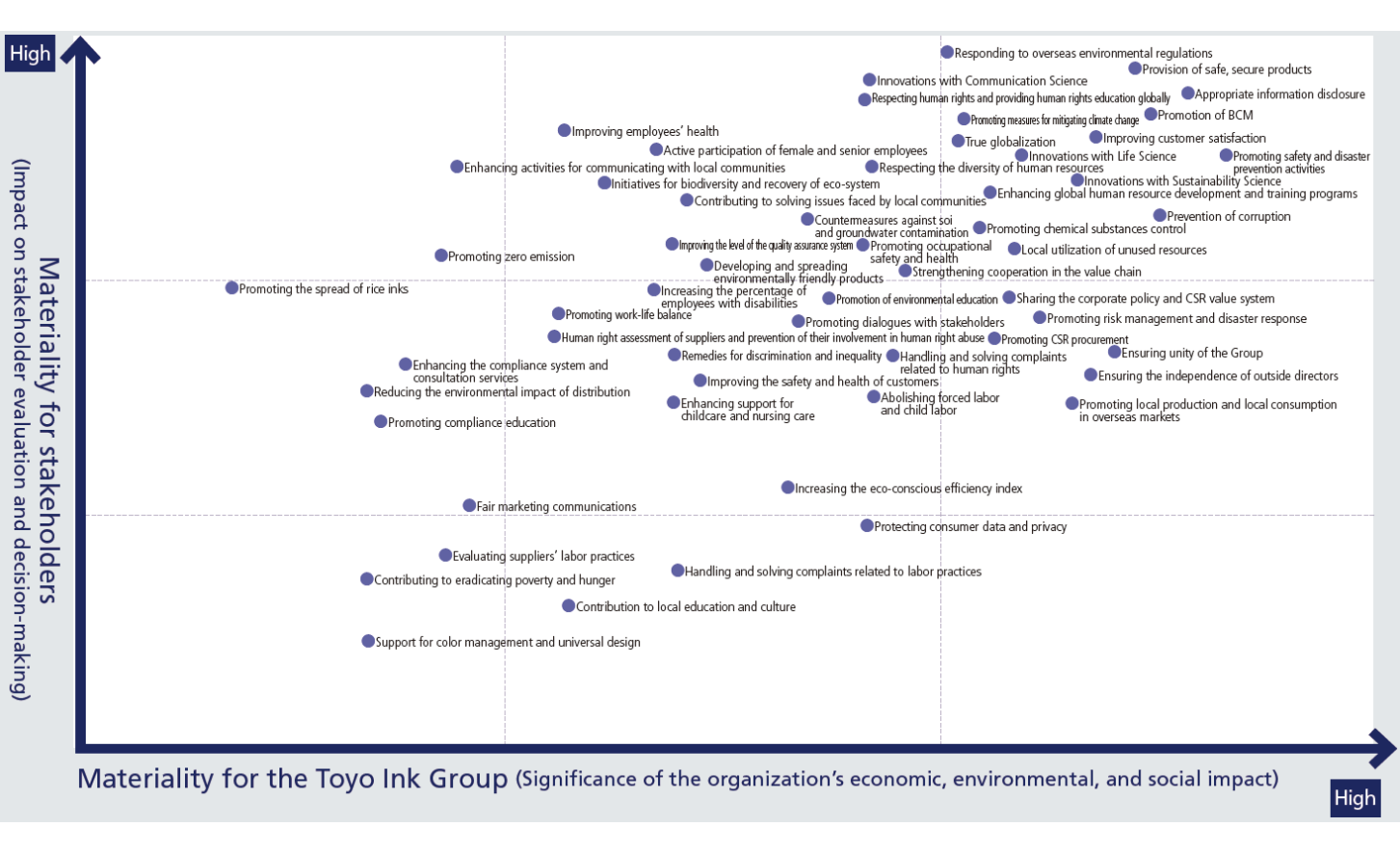Materiality formulation process
We have formulated important issues (materiality) that organize the issues that our group should address, and are proceeding with initiatives.
STEP1 Extract issues
We held a workshop with executives, mainly members of the CSR Promotion Subcommittee (currently ESG Promotion Subcommittee), and discussed international guidelines, important issues for chemical manufacturers, and the idea that our group has a significant impact on the economy, society, and environment. We have identified aspects that will be affected and issues that must be addressed as candidates for important issues.
STEP2 Prioritize important issues
Based on the extracted material issue candidates, the CSR Promotion Subcommittee (currently ESG Promotion Subcommittee) mapped the coordinate axes of "importance to stakeholders" and "importance to our group," and identified items with high priority. Narrowed it down.
Mapping results of extracted important issues


STEP3 Dialogue with stakeholders
Through repeated communication both within and outside the company, including dialogue with external experts and internal workshops, the formulation members, led by the CSR Promotion Subcommittee (currently ESG Promotion Subcommittee), further narrowed down the material issues.

In-house workshop to consider important issues and vision

Dialogue with Yokohama National University (2017)
STEP4 Formulation of important issues
We have organized the narrowed-down material issues, the vision we aim for and the boundaries (scope of impact), and have clarified the five material issues, as well as the positioning and relationships of each material issue. Then, after approval by the CSR Management Committee (currently Sustainability Committee) and Group Management Committee, we formulated material issues in fiscal 2017, and began activities based on the material issues in fiscal 2018.
